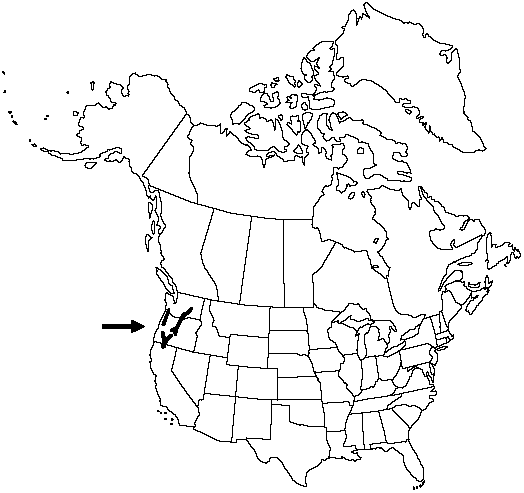Difference between revisions of "Abies procera"
Rhodora 42: 522. 1940.
FNA>Volume Importer |
imported>Volume Importer |
||
| (2 intermediate revisions by 2 users not shown) | |||
| Line 8: | Line 8: | ||
}} | }} | ||
|common_names=Noble fir | |common_names=Noble fir | ||
| + | |special_status={{Treatment/ID/Special_status | ||
| + | |code=E | ||
| + | |label=Endemic | ||
| + | }} | ||
|basionyms={{Treatment/ID/Basionym | |basionyms={{Treatment/ID/Basionym | ||
|name=Abies nobilis | |name=Abies nobilis | ||
| Line 31: | Line 35: | ||
|discussion=<p>See discussion under <i>Abies magnifica</i>.</p> | |discussion=<p>See discussion under <i>Abies magnifica</i>.</p> | ||
|tables= | |tables= | ||
| − | |references= | + | |references={{Treatment/Reference |
| + | |id=maze1983a | ||
| + | |text=Maze, J. and W.H. Parker. 1983. A study of population differentiation and variation in Abies procera. Canad. J. Bot. 61: 1094--1104. | ||
| + | }} | ||
}}<!-- | }}<!-- | ||
| Line 47: | Line 54: | ||
|elevation=60–2700m | |elevation=60–2700m | ||
|distribution=Calif.;Oreg.;Wash. | |distribution=Calif.;Oreg.;Wash. | ||
| − | |reference= | + | |reference=maze1983a |
|publication title=Rhodora | |publication title=Rhodora | ||
|publication year=1940 | |publication year=1940 | ||
| − | |special status= | + | |special status=Endemic |
| − | |source xml=https:// | + | |source xml=https://bitbucket.org/aafc-mbb/fna-data-curation/src/2e0870ddd59836b60bcf96646a41e87ea5a5943a/coarse_grained_fna_xml/V2/V2_145.xml |
|genus=Abies | |genus=Abies | ||
|species=Abies procera | |species=Abies procera | ||
Latest revision as of 20:21, 5 November 2020
Trees to 80m; trunk to 2.2m diam.; crown spirelike. Bark grayish brown, in age becoming thick and deeply furrowed (furrows and ridges about same width) and reddish brown (especially reddish when plates flake off). Branches diverging from trunk at right angles, stiff; twigs reddish brown, finely pubescent for several years. Buds hidden by leaves, tan, ovoid, small, not resinous, apex rounded; basal scales short, broad, equilaterally triangular, pubescent centrally, not resinous, margins entire to crenate, apex sharp-pointed. Leaves 1–3(–3.5)cm × 1.5–2mm, 1-ranked, flexible, proximal portion often appressed to twig for 2–3mm (best seen on abaxial surface of twig), distal portion divergent; cross section flat, with prominent raised midrib abaxially, with or without groove adaxially, or cross section 4-sided on fertile branches; odor pungent, faintly turpentinelike; abaxial surface with 2–4 glaucous bands, each band with (4–)6–7 stomatal rows; adaxial surface bluish green, with 0–2 glaucous bands, each band with 0–7 stomatal rows at midleaf; apex rounded to notched; leaves on fertile branches 4-sided with 4 bands of stomates below; resin canals small, near margins and abaxial epidermal layer. Pollen cones at pollination ± purple, ± red, or reddish brown. Seed cones oblong-cylindric, 10–15 × 5–6.5cm, green, red, or purple, overlaid with green bracts, at maturity brown (bracts light-colored and scales dark), sessile, apex rounded; scales ca. 2.5 × 3cm, pubescent; bracts exserted and reflexed over scales. Seeds 12 × 6mm, body reddish brown; wing slightly longer than body, light brown to straw; cotyledons (4–)5–6(–7). 2n =24.
Habitat: Mixed coniferous forests
Elevation: 60–2700m
Distribution

Calif., Oreg., Wash.
Discussion
See discussion under Abies magnifica.